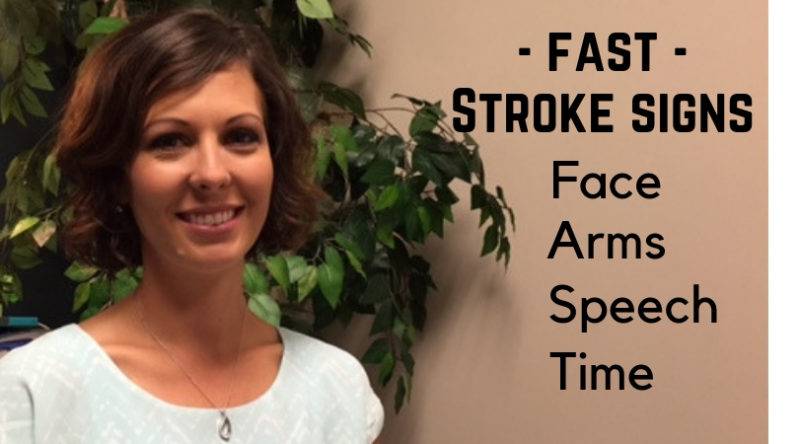
Stroke Signs
By: Tara Leetch, RN
We’ve all heard of a heart attack. The easiest way to understand a stroke is to think of it as a “brain attack.” A stroke happens when vital blood flow and oxygen are cut off in the brain.
The signs of a stroke come on fast and can include numbness or weakness in the face, arm or leg, especially on one side of the body. Stroke victims can also feel confused and have trouble speaking, understanding, or seeing in one or both eyes.
Stroke victims may also have trouble walking because of dizziness, loss of balance or coordination. A sudden, severe headache for no apparent reason can also be a sign of a stroke.
The National Stroke Association uses “FAST” (face, arms, speech, time) to help people remember stroke warning signs and what to do:
Face – ask the person to smile. Does one side of the face droop?
Arms – ask the person to raise both arms. Does one arm drift downward?
Speech – ask the person to repeat a simple phrase. Is their speech slurred or strange?
Time – if you see any of these signs, call 9-1-1 right away.
In the U.S., a stroke occurs every 40 seconds, taking a life about every four minutes.
There are two things that can increase the risk of having a stroke. The first is medical risk factors such as high cholesterol, high blood pressure, heart disease, atrial fibrillation, carotid artery disease or history of stroke or TIA (mini stroke). Even if you have had problems with these in the past they can often be controlled or managed with help from your doctor or medical provider.
The second thing that can increase your risk of having a stroke is related to lifestyle risk factors such as smoking, being overweight and drinking too much alcohol. You can control these by quitting smoking, exercising regularly (check with your doctor or medical provider before starting new exercise), watching how much you eat, and limiting the amount of alcohol you drink. These changes can be hard, so talk to your doctor or medical provider about free programs that can help.
Two million brain cells die every minute during a stroke. To save your life or that of a loved one, talk with your doctor about how to reduce risk factors and act FAST if you see symptoms of a stroke.
